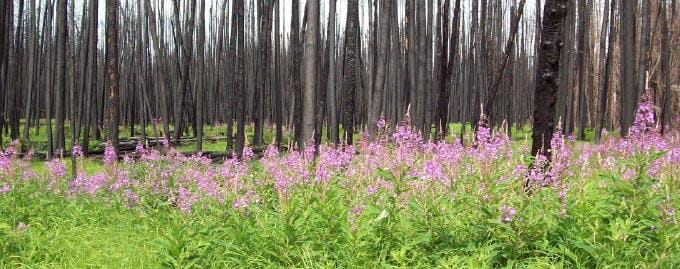
Key Indicators
Managed forests and greenhouse gas emissions
A measure of forest health and its relationship to climate change is the measurement of greenhouse gas (GHG) emissions and carbon stocks.
Natural forest disturbance
Natural disturbances such as fire, wind, flood and insect and disease outbreaks are an important part of the natural life cycle of forests, especially the boreal forest.
Deforestation in Saskatchewan
Deforestation is the permanent conversion of forests to other land uses through human activity.
Watershed health within the greater commercial forest
Forest disturbance from timber harvesting or wildfire may impact aquatic environments by increasing soil erosion, stream flow and nutrient loading through watershed systems.
Cumulative impacts from linear features
Understanding current disturbance levels within the provincial forest is important for assessing the cumulative impacts of human-caused disturbances.
Regeneration of timber harvest area
Forests that are regenerated successfully are essential to a long-term sustainable flow of wood products and ecosystem productivity.
Mountain pine beetle detection and prevention
Mountain pine beetle can colonize and kill pure jack pine trees, posing a threat to pine forest ecosystems and sustainable development of the forest industry in Saskatchewan and across Canada.
